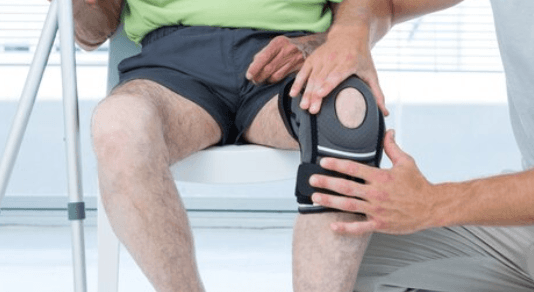Knee osteoarthritis is one of the most common joint conditions affecting people, especially those above 40. It results in pain, stiffness, and decreased mobility in the knee. Understanding what this condition is and how it’s diagnosed is the first step to managing it effectively. Many people believe surgery is the only option, but today, several clinics offer Non-Surgical Treatment for Knee Osteoarthritis in North Delhi, helping patients avoid invasive procedures.
For fast information, direct chat with us on WhatsApp.
What is Knee Osteoarthritis?
Knee osteoarthritis is a degenerative joint disease that affects the cartilage in the knee joint. Cartilage is a slick, elastic substance that coats the ends of bones, enabling them to glide smoothly against one another. Over time, due to wear and tear or injury, this cartilage starts breaking down. When it deteriorates, bones begin rubbing directly against each other, causing pain, swelling, and difficulty in movement.
This is a progressive condition, meaning it worsens with time if not properly treated. However, with early diagnosis and proper care like Non-Surgical Treatment for Knee Osteoarthritis, patients can manage symptoms well and improve their quality of life.
What Causes Knee Osteoarthritis?
There’s no single cause for knee osteoarthritis. Several factors contribute to its development, such as:
- Age: Common in people over 40
- Obesity: Excess weight puts extra pressure on knee joints
- Previous Injury: Old injuries can trigger cartilage breakdown
- Genetics: Family history increases risk
- Overuse: Repetitive movements at work or in sports
While these factors can’t always be avoided, early detection and opting for Non-Surgical Treatment for Knee Osteoarthritis can reduce long-term damage.
Symptoms You Shouldn’t Ignore
Knee osteoarthritis doesn’t develop overnight. It progresses slowly, showing symptoms such as:
- Knee pain during or after movement
- Stiffness, especially in the morning
- Swelling around the joint
- Limited range of motion
- Grinding or cracking sound when bending the knee
If you experience these, consult a specialist without delay. In specialize in Non-Surgical Treatment for Knee Osteoarthritis in North Delhi, offering timely interventions to ease discomfort and slow progression.
How is Knee Osteoarthritis Diagnosed?
Accurate diagnosis is essential for choosing the right treatment. Here’s how doctors typically diagnose it:
1. Medical History and Symptom Discussion
The doctor will ask about your pain duration, intensity, daily activities, and any history of injury.
2. Physical Examination
They check for swelling, stiffness, tenderness, and range of motion in the knee.
3. X-Rays
X-rays help detect cartilage loss, bone changes, and joint space narrowing.
4. MRI
In some cases, an MRI is suggested to get detailed images of cartilage and soft tissues around the knee.
Clinics like Trinity Pain Clinic follow a structured diagnostic approach to assess the condition early and recommend the best Non-Surgical Treatment for Knee Osteoarthritis.
Why Choose Non-Surgical Treatments?
Surgery isn’t always necessary. Many patients successfully manage osteoarthritis with non-invasive care. Non-Surgical Treatment for Knee Osteoarthritis in North Delhi focuses on reducing pain, improving mobility, and delaying or preventing surgery.
The benefits include:
- No long hospital stays
- Faster recovery
- Less risk of complications
- Affordable and effective
The treatment plans are customized according to the patient’s condition, focusing on improving knee health naturally and safely.
Popular Non-Surgical Treatment Options
Some effective non-surgical treatments for knee osteoarthritis include:
- Medications: Pain relievers and anti-inflammatory drugs
- Physiotherapy: Exercises to strengthen muscles and improve flexibility
- Intra-Articular Injections: Such as hyaluronic acid or regenerative PRP
- Lifestyle Modifications: Weight management and activity adjustments
- Bracing and Supports: To reduce stress on the knee
These techniques help reduce discomfort and improve daily function without surgery. one of the trusted places offering these Non-Surgical Treatment for Knee Osteoarthritis.
Facts About Knee Osteoarthritis
- It affects around 30% of people over 50
- It is more likely to affect women than men.
- Early treatment slows down joint degeneration
- Regular exercises like walking and swimming help protect knee health
- Non-surgical care improves long-term joint mobility and reduces dependence on pain medications
People experiencing mild or moderate symptoms can delay the need for surgery through timely, personalized care.
Effects of Untreated Knee Osteoarthritis
If ignored, knee osteoarthritis can lead to:
- Severe, chronic pain
- Inability to perform routine tasks
- Joint deformity
- Reduced independence
- Higher risk of falls and injuries
Early intervention with Non-Surgical Treatment for Knee Osteoarthritis can prevent these complications and maintain joint function for years.
Conclusion
Knee osteoarthritis is a common but manageable condition. Early diagnosis and timely care make a significant difference in slowing its progression. While surgery is an option for severe cases, many people manage symptoms effectively through Non-Surgical Treatment for Knee Osteoarthritis in North Delhi. Clinics like Trinity Pain Clinic offer comprehensive non-invasive solutions, providing patients relief from pain, improved mobility, and a better quality of life without undergoing major procedures. If you or your loved one is experiencing persistent knee discomfort, don’t delay. Consult an expert and explore non-surgical options to regain an active, pain-free life.
For more information, visit: https://drsmitagulatipainrelief.com/



